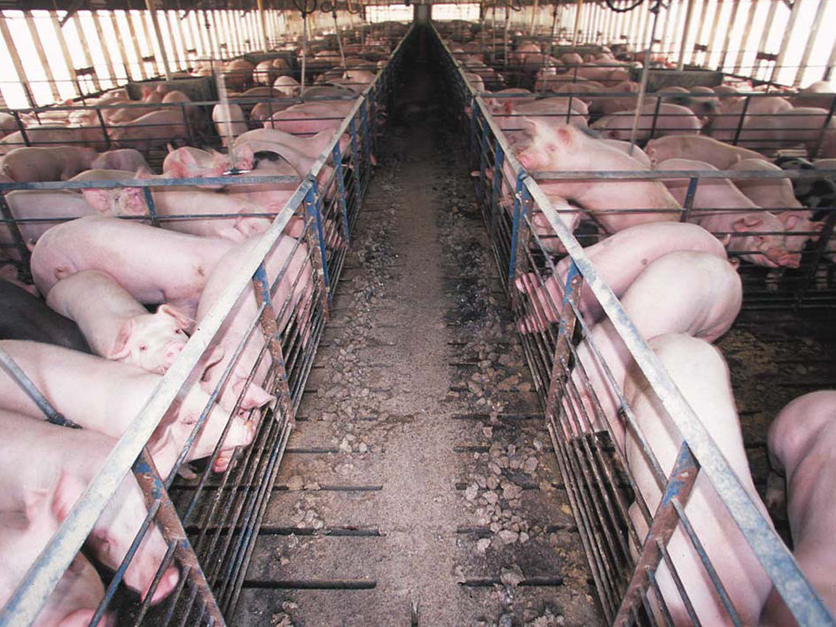A 9th U.S. Circuit Court of Appeals panel did not hint at how it will end up ruling in a case argued Wednesday over California’s Proposition 12, which would require pork products sold in the state to come from sows raised with a minimum amount of square footage.
Timothy Bishop, representing the National Pork Producers Council and American Farm Bureau Federation, said pig farmers throughout the country will have to bear the costs of altering their operations to comply with Prop 12.
Those “immense costs,” he said, “are going to be borne by every single market hog,” he told the three-judge panel. The law, the groups argue, violates the Commerce Clause by imposing costs on producers outside of California.
The ballot initiative that was passed in 2018 already requires minimum housing standards for egg-laying hens and calves raised for veal. Next year the law will impose cage-free requirements for egg-laying hens and impose a minimum space requirement for breeding pigs.
But R. Matthew Wise, California Deputy Attorney General, said “Prop 12 is indifferent to the sale of pork products in other states” and that while “it’s certainly true laws can have an effect on out-of-state conduct,” California nevertheless has the right to regulate products sold within its borders.
Humane Society of the United States attorney Bruce Wagman said California “has the right to not be complicit in animal cruelty.” He also argued that the pork industry’s practices are diverse enough to adjust to the law.
Circuit Judge Milan Smith pressed that point with Bishop, noting that Ohio has its own regulatory regime. But Bishop said that state’s law is materially different from California’s because “it allows something that virtually every farmer in the U.S. does, which is to use individual stalls post-weaning.”
Californians consume about 13% of the nation’s pork, but its own farmers produce very little of that.
“Proposition 12’s extraterritorial effects on commerce are serious,” NPPC and AFBF said in one of their briefs. “Essentially all — 99.8% — of the pork Californians consume is imported from out of state.”
“And every pig from which any cut of pork reaches California necessarily bears Proposition 12’s substantial costs, meaning that farmers and consumers everywhere pay for California’s preferred animal-housing methods,” the brief said. “In addition, because segregation and tracing throughout the complex pork-production chain is not possible, even pigs whose meat is sold entirely outside California will have to come from Proposition 12-compliant facilities and will carry those same costs.
Interested in more coverage and insights? Receive a free month of Agri-Pulse West.
“Inevitably, the per-pig costs of complying with Proposition 12 are borne by the suppliers and consumers of pork sold nationwide,” they said.
“You don’t sell a whole hog into California,” Bishop told the judges. “You butcher the hog into dozens and dozens of different cuts, and every one of those cuts bears the costs of Prop 12.”
Twenty states, as well as other industry groups such as the National Cattlemen’s Beef Association and FMI-the Food Industry Association, filed amicus briefs supporting AFBF and NPPC. The states contend the district court judge who dismissed the challenge did not apply Supreme Court precedent properly by examining the “practical effects” of the law on producers in their states.
In a separate case, the North American Meat Institute has petitioned the Supreme Court to review a 9th Circuit decision denying a request for an injunction to halt the implementation of Prop 12. The group’s effort is backed by the same 20 states: Alabama, Alaska, Arkansas, Georgia, Indiana, Iowa, Kansas, Louisiana, Missouri, Montana, Nebraska, North Dakota, Ohio, Oklahoma, South Carolina, South Dakota, Texas, Utah, West Virginia, and Wyoming.
For more news, go to www.Agri-Pulse.com.


